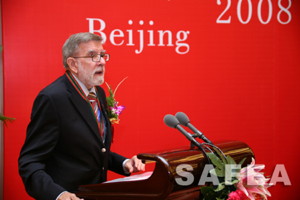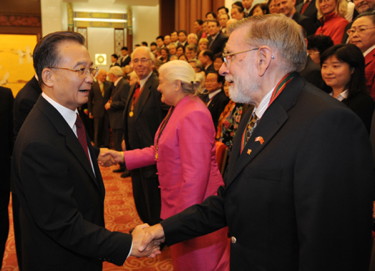|
My academic interests have focused on the themes of psychosocial stress, population displacement (because of development projects, war, or urbanization), travelling theory/culture, embodiment and multiple identities, and social justice, all through the lens of Medical Anthropology.
 |
I have been concerned with mental health issues in Canada, China, and West Africa -and for ten years was a ` member of the Canadian Mental Health Association's national committee on the 'Primary Prevention' of disorders and stigma. I also have examined the 'travelling' of Psychiatry and of Public Health in and from North America to China and elsewhere -notably, the role of The Rockefeller Foundation & Johns Hopkins University in all this in the first half of the twentieth century. Culturally sensitive healthcare was the concern of my several years' involvement with the Black Creek Community Health Centre serving the immigrant & refugee groups in the Jane-Finch area, as well as one during my two years on the body regulating Psychology in Ontario. |
Populations forcibly relocated because of national 'development' schemes have been studied too; i.e., the Volta River Dam Project & the Nchumuru people of Ghana, and the Three Gorges Dam Project & the Tujia people of China. 'Ethnic' identities have been engaged with via my brief student-days' exposure to Inuit and Oneida/Iroquois peoples, and via my later, longitudinal work with Ghana's Nchumuru, later exploratory work with Liberian refugees in Sierra Leone & Ghana, and now via an ongoing interest in the Tujia people of Chongqing & related Provinces in China. |
 |
For his 25 years of activity promoting sister city relationship between Toronto and Chongqing, in 2007 I was honored with a Three George Friendship Award from municipal government of Chongqing, and at 2008 I was given a Great Wall Friendship Award from central government of China (see photo with then Chinese Premier Wen Jiabao)-this is the highest honor given to foreigners. In that light, he was nominated for an Order of Canada.
I taught graduate student at Southwest University in Chongqing in China during 2006 to 2008. I was based at research institute on the education and psychology of minority nationalities of southwest China. I also received honorary professorship from SISU, Sichuan International Studies University (1985 and after), from Yunnan Normal University in Kunming and from Guizhou Normal University in Guiyang at 2008. I have been developing a research focus on Tujia people of Southwest China but increasingly I have been focusing on auto-ethnography of my experience of Parkinson’s disease, which is intended to include some comparative material from Canada and China.
I am an active member of York's Critical Disability Studies Program, and hence am interested in 'dis-ability' intersectional identities, stigma and the ethnocentricities of 'able-ism' across cultures: I myself am a Person With Disabilities. The huge Chinese city of Chongqing -perhaps now the world's largest municipality (ca. 32 million inhabitants, and growing), has been part of my life for the last twenty-five years. I played a role in creating and maintaining the official Sister City relationship between Toronto and Chongqing. During my 2006-2008 sabbatical and to date, I have been concerned with 'urbanization with Chinese characteristics', with social and economic changes in Chongqing -e.g., with the 'municipalisation' of the peasantry, as millions of Chongqing's rural dwellers 'transfer' or are 'transferred' and so become 'peasant workers' in the expanding city (as true elsewhere in China too), with all the health, social security, education, and social stratification and national implications thereof. China's re-emergence on the world stage, such as its recent commitments to Africa, attract my attention as well.
I firmly believe that Anthropology helps us to better understand and to endeavour to make due changes in our contemporary world, locally and globally; it helps us to combat ethnocentrism and social suffering; it makes for engaged, creative citizenship, and for the achieving of social justice.
|




